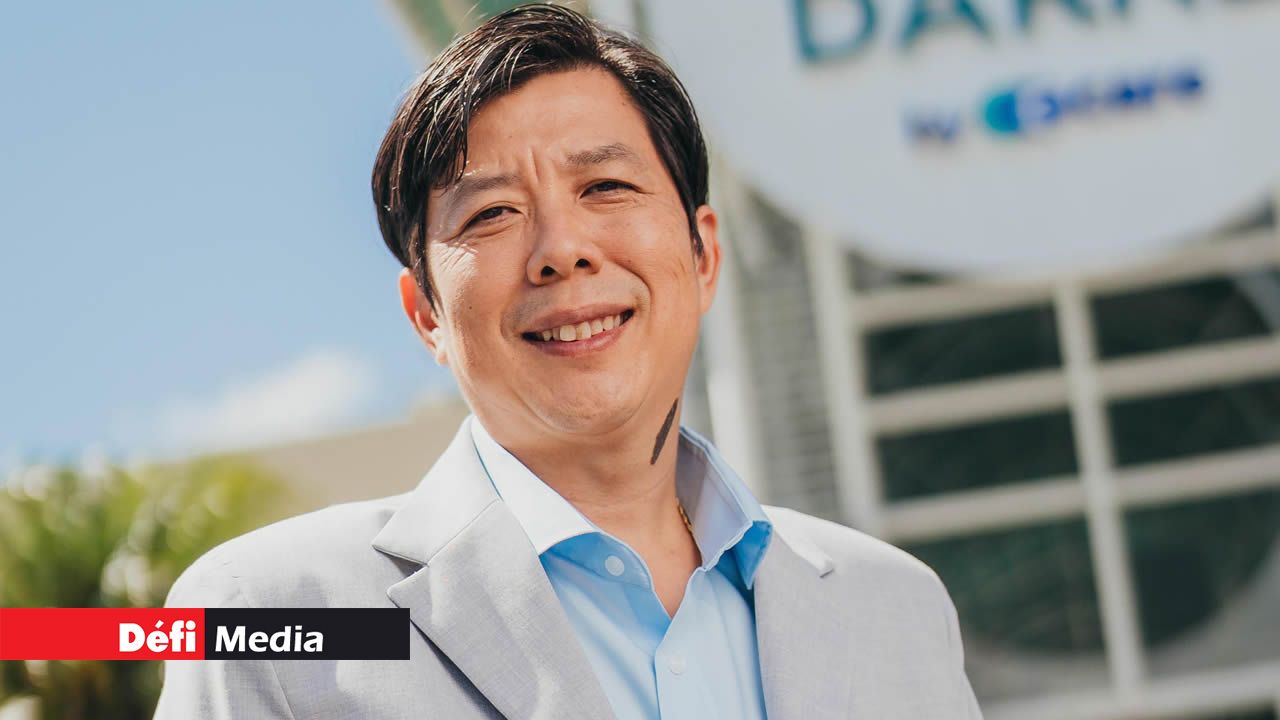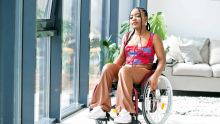
Our health care system has been severely impacted by Covid-19. Clive Chung, COO of C-Care Darné states that this pandemic has brought some positivity to the health sector by strengthening the partnership and collaboration between the government, authorities and private sector.
Publicité
Almost two years since we have been hit by Covid-19. What is your general assessment of the current situation of Covid-19?
Over the past two years, the virus has evolved, producing several variants which are still a threat to all communities. However, we have also made significant progress in our way to handle the pandemic. For instance, in Mauritius, as of date, with more than 75% of the population already vaccinated, we, as a community, have built better protection against the virus. That being said, we should continue to scrupulously maintain good hygiene and follow strict sanitary protocols. In certain countries, we are even noticing a resurgence of the virus and the situation is being closely monitored.
Covid-19 has created huge challenges. At C-Care, we have risen rapidly to address those challenges and we were the first private healthcare service provider to provide PCR Testing. In a short period of time, we have successfully managed to provide care in vaccination centres, covid isolation units and covid isolation wings. We have been satisfied with the fact that patients have been very receptive to the vaccination, which to date remains the most effective solution to protect themselves, their families and the community.
What has this pandemic shown us about the healthcare supply chain and what might need to change in the future?
The Covid-19 pandemic has exerted significant challenges on the supply chain activities globally, regionally and in Mauritius. The different lockdowns in several countries have disrupted the flow of medications, supplies such as masks and medical equipment as well as the shortage of qualified healthcare professionals. This was an unprecedented crisis and no one could foresee such a strain on the medical system or race against time to get quality vaccines for our population.
In Mauritius, the shortage of medical staff was prevalent before 2020 and the pandemic has accelerated this phenomenon. We need to take the lessons learned from this pandemic and work to find sustainable solutions within our sector, to better serve our population. We should rethink and review our trade agreements and partnerships. If we are too dependent on certain suppliers, we might face issues when sourcing becomes more challenging. Lastly, there is also the potential to create a “medical hub” in Mauritius. However, in order to do so, it is important to set up the necessary infrastructure and define the appropriate models which will help put in place the above-mentioned medical hub.
The pandemic has pushed healthcare professionals under the limelight as they have been on the frontline to fight off the virus."
What are some of the positive effects that could potentially come from this crisis?
Despite all the hardships that the pandemic brought along, it brought families together and has helped people build stronger relationships with their loved ones, their colleagues or neighbours. Solidarity is important.
From a technological perspective, the pandemic has accelerated the digital transformation of numerous companies - the virtual office became a norm. Now more than ever, people are more conscious of the importance of better personal hygiene as well as the benefits of sanitary measures to protect themselves.
The crisis has shown the importance of a strong healthcare system and highlighted the vital role of healthcare professionals in battling the pandemic. In Mauritius, the crisis has strengthened the partnership and collaboration between the government, authorities and private sector; all working towards helping our nation. Indeed, the pandemic has pushed healthcare professionals under the limelight as they have been on the frontline to fight off the virus. Through the pandemic, the roles and the importance of the profession have been highlighted and recognised which had a positive impact on the image of the sector in general.
There has been a shift to telemedicine. Do you believe this will be the next trend?
Telemedicine is still underused in Mauritius. The use of technology by medical professionals to diagnose and treat a patient virtually and using telecommunication has its benefits and limitations. During the pandemic, some doctors and psychologists were able to provide assistance virtually and it was really useful when there was limited access to public spaces and healthcare centres. However, a majority of patients prefer in-person consultations and doctors also like to interact directly with their patients.
In Mauritius, the shortage of medical staff was prevalent before 2020 and the pandemic has accelerated this phenomenon."
Is C-Care working towards this?
Using telemedicine as an alternative to in-person consultation has a host of benefits for both patients and healthcare service providers. At C-Care, the patient’s experience is at the heart of our operations and we are very interested to explore this possibility in the future. However, we need to take cognizance that telemedicine is quite new and the population will need to be willing to shift to this type of alternative. There are many opportunities that lie ahead and we will follow suit at the right time.
Many countries, especially low- and middle-income countries, were not well prepared for such an outbreak. Too often, response efforts were only partially or not at all informed by evidence during the pandemic. How do you think knowledge translation and evidence-to-policy pathways can be strengthened and improved?
The pandemic has hit high-income countries and low-income countries alike. The World Health Organisation (WHO), whose primary role is to direct international health within the United Nations’ system and to lead partners in global health responses, was the one who created all the necessary guidelines and guidance documents and shared them with populations across the world to fight the virus.
C-Care has been at the heart of innovation. What next can we expect for a better healthcare service?
C-Care is driven by innovation and has the patient’s experience at heart. We are currently working on several projects including, the construction of the cancer unit at C-Care Darné, which will open in 2023. C-Care Darné has recently acquired the Thulium Fiber Laser which is a machine that is revolutionising the treatment of kidney stones, benign prostatic hyperplasia (BPH) and soft tissues as well as the practice of ultra-minimally invasive urology.
C-Care Wellkin has acquired the CT Scan Skylight which enhances CT lighting by bringing the therapeutic benefits of views to nature for patient comfort and relaxation to the patients. The hospital has acquired a new MRI machine in order to provide patients and doctors with more detailed images.
In a continued effort to be closer to the population, we have recently started the construction of C-Care Grand-Baie, which will be located in the heart of Mont Choisy’s Smart City. The clinic will open its doors in 2023 and will offer a range of services, such as emergency, medical imaging, treatment rooms, general medicine, dermatology, gynaecology, dentistry and cardiology, among others.
We also continuously train our staff in order to improve their knowledge and soft skills, and we strive towards delivering the most caring and accurate medical expertise, always putting our patients first.
Do you think it is now time to live the new normal life despite Covid-19?
We are already living in a new normal era. The sanitary protocols are part of our daily routine - most professionals are already back in the office and students are adapting again to in-person schooling. This has been said numerous times but it is essential to have good hygiene and respect sanitary protocols and social distancing. We all have a responsibility to ensure that we don’t put vulnerable people at risk.

Notre service WhatsApp. Vous êtes témoins d`un événement d`actualité ou d`une scène insolite? Envoyez-nous vos photos ou vidéos sur le 5 259 82 00 !























